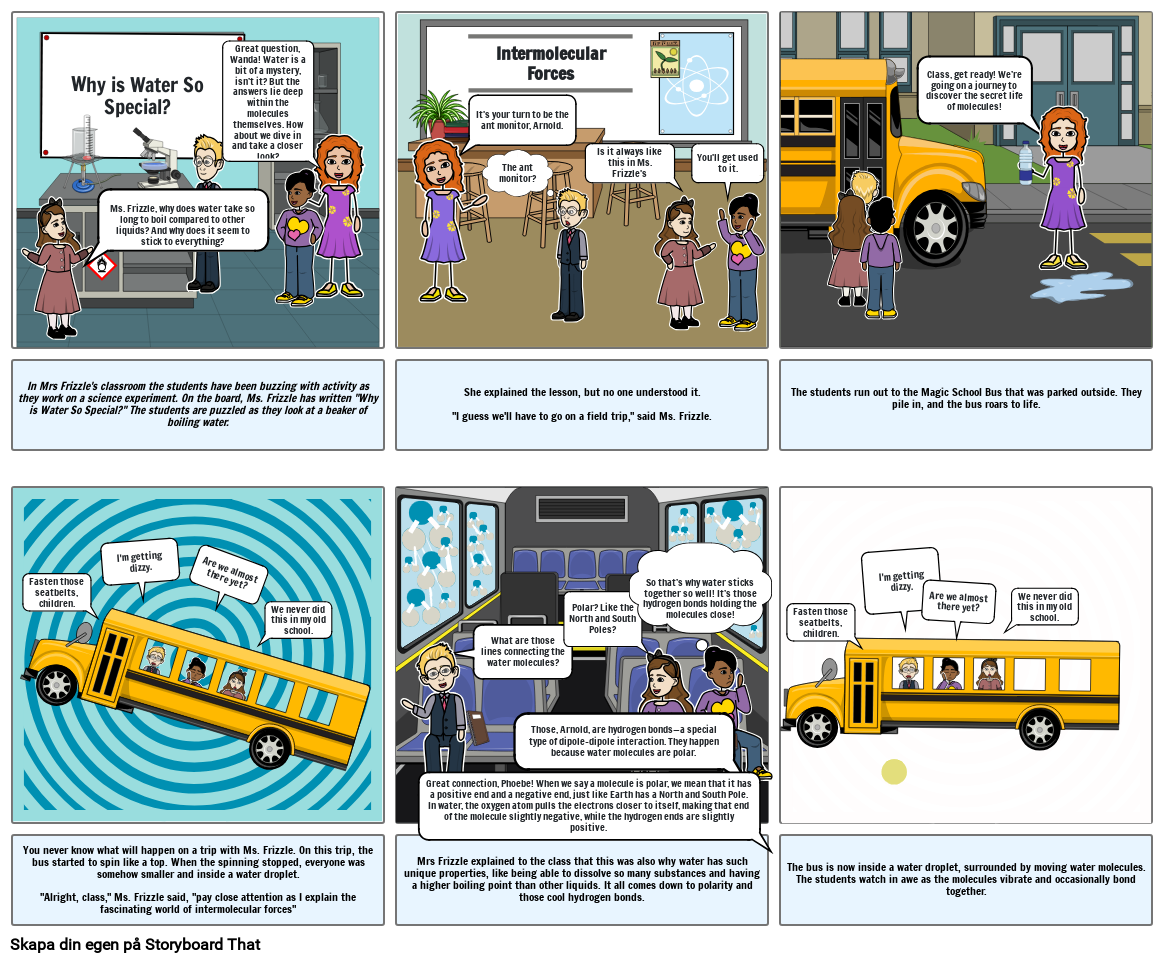Untitled Storyboard

Öykü Penceresi Metni
- Slayt: 1
- Why is Water So Special?
- Great question, Wanda! Water is a bit of a mystery, isn’t it? But the answers lie deep within the molecules themselves. How about we dive in and take a closer look?
- Ms. Frizzle, why does water take so long to boil compared to other liquids? And why does it seem to stick to everything?
- In Mrs Frizzle's classroom the students have been buzzing with activity as they work on a science experiment. On the board, Ms. Frizzle has written "Why is Water So Special?" The students are puzzled as they look at a beaker of boiling water.
- Slayt: 2
- Intermolecular Forces
- .
- It's your turn to be the ant monitor, Arnold.
- Is it always like this in Ms. Frizzle's classroom?
- You'll get used to it.
- The ant monitor?
- She explained the lesson, but no one understood it."I guess we'll have to go on a field trip," said Ms. Frizzle.
- Slayt: 3
- Class, get ready! We’re going on a journey to discover the secret life of molecules!
- The students run out to the Magic School Bus that was parked outside. They pile in, and the bus roars to life.
- Slayt: 4
- I'm getting dizzy.
- Are we almost there yet?
- Fasten those seatbelts, children.
- We never did this in my old school.
- You never know what will happen on a trip with Ms. Frizzle. On this trip, the bus started to spin like a top. When the spinning stopped, everyone was somehow smaller and inside a water droplet."Alright, class," Ms. Frizzle said, "pay close attention as I explain the fascinating world of intermolecular forces"
- Slayt: 5
- So that’s why water sticks together so well! It’s those hydrogen bonds holding the molecules close!
- Polar? Like the North and South Poles?
- What are those lines connecting the water molecules?
- Those, Arnold, are hydrogen bonds—a special type of dipole-dipole interaction. They happen because water molecules are polar.
- Great connection, Phoebe! When we say a molecule is polar, we mean that it has a positive end and a negative end, just like Earth has a North and South Pole. In water, the oxygen atom pulls the electrons closer to itself, making that end of the molecule slightly negative, while the hydrogen ends are slightly positive.
- Mrs Frizzle explained to the class that this was also why water has such unique properties, like being able to dissolve so many substances and having a higher boiling point than other liquids. It all comes down to polarity and those cool hydrogen bonds.
- Slayt: 6
- I'm getting dizzy.
- Are we almost there yet?
- We never did this in my old school.
- Fasten those seatbelts, children.
- The bus is now inside a water droplet, surrounded by moving water molecules. The students watch in awe as the molecules vibrate and occasionally bond together.
30 Milyondan Fazla Storyboard Oluşturuldu

